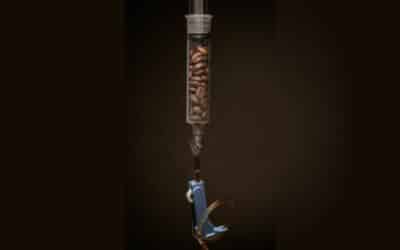Is a BSN worth it if I already have an ADN?
It’s that time of year where graduations are being celebrated all over the nation. If you already earned your associate’s degree, you may be wondering if continuing your education is worth it.
It’s a valid question; after all, the average RN to BSN program costs about 50,000 dollars, so the benefits need to outweigh the expense.
How does getting a BSN help?
On average, nurses who have a BSN make about 4 dollars an hour more than nurses who don’t. That doesn’t seem like much now, but even at 36 hours a week, the extra money adds up to over 7,000 dollars a year.
Now it comes down to math and growth. If a program costs 50,000, it will take about 7 years to make back the difference. If you are in your 50’s that doesn’t balance out. If you are early in your career, it absolutely can make a difference. Of course, getting a BSN doesn’t just help with hourly paychecks; it also opens up doors.
Hospitals prefer to hire BSN nurses for many reasons, including ratios necessary to make magnet status, preferences for evidence-based practices, or even leadership positions. In fact, ADN nurses are already eligible for about 51% of all jobs, with an additional 37% of jobs requiring a BSN. That means nurses who hold a BSN meet the requirements for 88% of all nursing jobs.
According to the AACN, nurses who have BSNs are statistically more likely to deliver high-quality care, something hospital HR managers can’t ignore. Why is that? Because the ADN has to focus on the clinical requirements to pass NCLEX. BSN programs usually take 4 years, so the focus is on the bigger picture, like how research impacts patient care, leadership training, and critical thinking.
A BSN may be a good idea, but it seems like a lot of work.
Four years seems like a long time, but the average RN to BSN program takes two years, with many programs taking even less time. Don’t forget, you already learned the hard stuff. If the thought of memorization and constant test-taking still gives you the heebie-jeebies, don’t fret. BSN programs typically focus more on writing and connecting the dots rather than NCLEX style test questions. Even if you aren’t a strong writer, it is a great opportunity to hone those skills and learn a little leadership on the side.
Wherever you go, don’t let the financial burden be the only deciding factor. You need to make sure the school is accredited. Without accreditation, the degree you work so hard on may be worthless to your employer. Double-check and then determine how you best learn. Programs may focus on in-person experiences or may be entirely online. BSN degrees are considered general practice, so you don’t need to make any big decisions yet about what type of nurse you want to be.
Do your research!
While you are at it, make sure you know what your employer offers for tuition reimbursement. Many hospitals provide thousands of dollars each year to colleagues who are willing to stay another year. Some places give scholarships, and hospital systems may even offer personalized cohorts so you can take classes with the people you work with. A good support system makes learning more manageable, so take advantage of the resources available to you.
If you still plan to be a nurse in the next 10 years, getting a BSN may be your pathway to making more and/or moving up. Whatever you decide, don’t forget to keep learning!





0 Comments